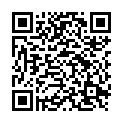|
|
|
| Module code: BAIBA-610 |
|
|
4V (4 hours per week) |
|
6 |
| Semester: 6 |
| Mandatory course: yes |
Language of instruction:
English |
Assessment:
Written exam
[updated 10.12.2020]
|
BAIBA-610 (P420-0171) International Business, Bachelor, ASPO 01.10.2008
, semester 6, mandatory course
|
60 class hours (= 45 clock hours) over a 15-week period.
The total student study time is 180 hours (equivalent to 6 ECTS credits).
There are therefore 135 hours available for class preparation and follow-up work and exam preparation.
|
Recommended prerequisites (modules):
BAIBA-480
BAIBA-510 Economic Policy
[updated 29.11.2019]
|
Recommended as prerequisite for:
|
Module coordinator:
Prof. Dr. Leonhard Firlus |
Lecturer:
Prof. Dr. Leonhard Firlus
[updated 20.03.2010]
|
Learning outcomes:
After successfully completing this module, students will be able to illustrate the causes and effects of trade
in a global environment and apply them to current examples.
- They will be able to illustrate the structure of a balance of payments and
carry out transactions independently.
- Students will be able to explain how exchange rates are determined and their importance
for international competitiveness.
- They will be able to show the possibilities and limits of an expansive demand policy
at fixed and floating exchange rates.
- Students will be capable of naming the central institutions of the European Union
and their tasks.
[updated 10.12.2020]
|
Module content:
- Development of international trade
- Principles of international trade theory and policy
- Balance of payments
- Foreign exchange markets and exchange rates
- Macroeconomic demand in an open economy with fixed and
floating exchange rates
- Principles of the European Union
[updated 10.12.2020]
|
Teaching methods/Media:
This module consists of a lecture and group work. Students are expected to prepare and present small group projects on selected foreign trade topics.
[updated 10.12.2020]
|
Recommended or required reading:
- Krugman, Paul / Obstfeld, Maurice: International Economics. Addison-Wesley, Reading Mass., latest edition.
- Maennig, Wolfgang / Wilfing, Bernd: Außenwirtschaft, Vahlen Verlag, München, latest edition.
- Rose, Klaus und Karlhans Sauernheimer: Theorie der Außenwirtschaft, Vahlen Verlag, München, latest edition.
- Salvatore, Dominick: International Economics. John Wiley & Sons Inc., New York, latest edition.
[updated 10.12.2020]
|


